Have you ever wondered about the pH of your soil? What about the moisture level? If you have, you likely have also looked into buying a soil meter. But with gadgets like these often comes an abundance of questions, the kicker of course being, are soil meters even accurate?
Soil meters that test for pH or moisture levels are a simple & reasonably accurate way to test your soil. They use an electric current to determine the pH and/or moisture level in your soil samples. The results are simple, but accurate enough for most home garden applications.
Though these meters are helpful, it depends on how much detailed information you need for your specific garden. For example, some models give a more detailed pH, while others give an approximation. There are a few tricks to using these meters in order to get the most accurate result, as well as different models depending on your needs. Let’s dig in!
Are soil meters accurate?
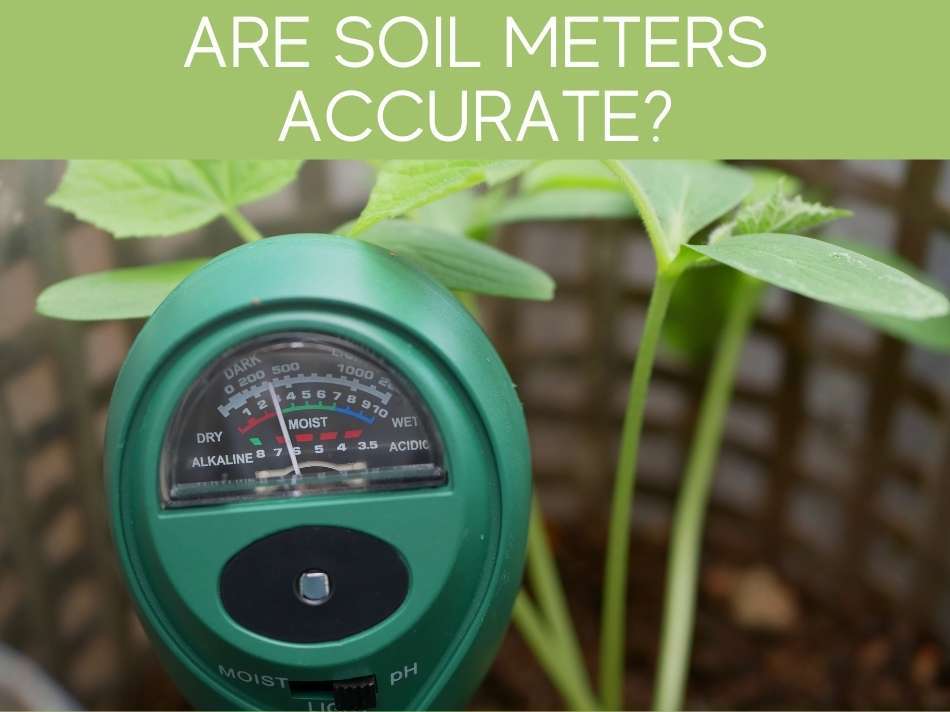
There are quite a few soil meters on the market, some test pH, some test for moisture levels and some do both!
The soil meters I am referring to in this post are electronic probe meters that you place in your soil and read the results from the face of the device.
Some gardeners may find that a home analog pH meter is not accurate enough for them, since they don’t measure to the first decimal place, while others do just fine with this simple approximation.
However, if you need more specific results the digital soil pH meters often do include the first decimal place.
For most home gardeners these soil meters provide enough information to be helpful in maintaining the health of their garden.
These meters come pre-calibrated and are very user-friendly so that you don’t need to be a soil scientist to test accurately and make sense of your results!
Soil meters use an electric current to determine the pH of the soil or the moisture levels, which helps you, the gardener, know what plants would thrive on your land (or what you need to change to make your garden more hospitable).
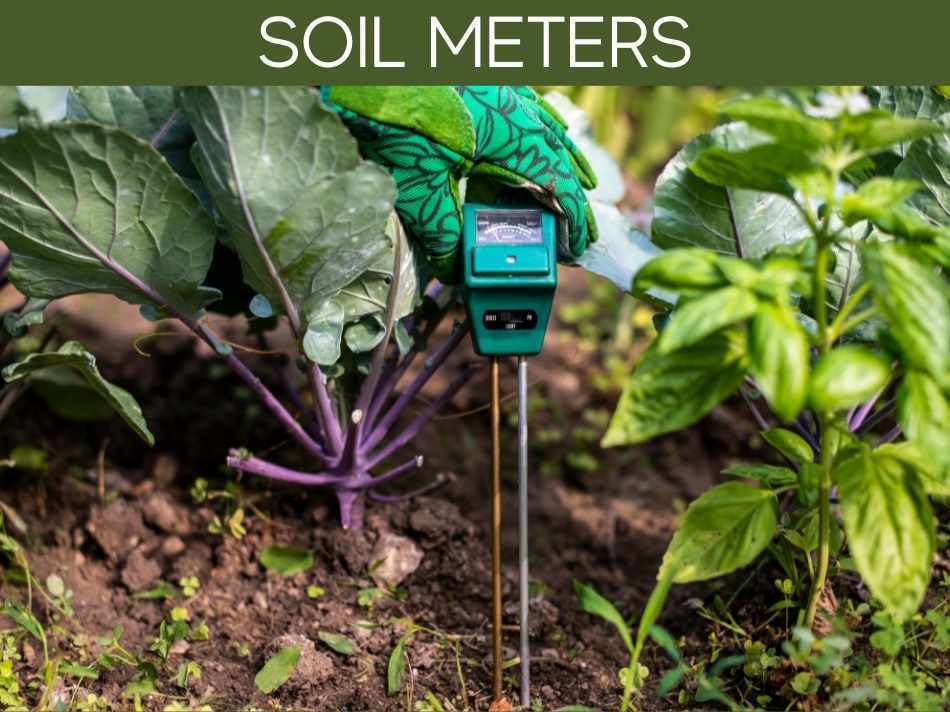
For example, tomatoes can exhibit stunted growth if micronutrients aren’t available.
Most plants need a balanced, well watered plot in order to flourish but there is most definitely a limit to how moist your soil should be.
Needless to say that a device that can help you determine the pH or moisture of your soil would be extremely helpful to most home gardeners, especially beginners!
Do you need to test your soil?
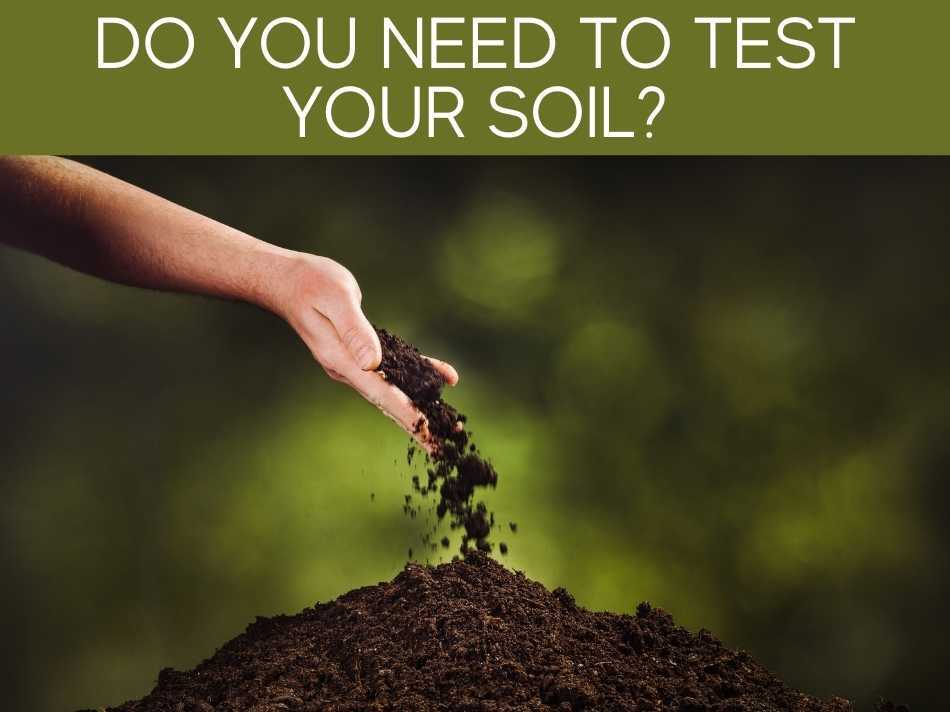
The pH meters available to the home gardener can help you get a good idea about the health of your soil, but if you have a very specific need for a particular plant then you would be better off to send your soil to a lab for more exact results.
The pH scale is a logarithmic scale, basically meaning the difference between the pH of 4.0 and 5.0 is x10; so the decimal points can be critically important in some cases!
If you need an extremely reliable and exact pH reading, you may need to send a soil sample to a lab for a more in-depth evaluation.
Soil moisture meters are also generally quite accurate, and help take the guessing out of your watering routine and soil drainage.
Soil moisture meters give you a simple answer, “wet, moist or dry”.
Though this answer is simple, it may help you adjust your watering habits if you are finding yourself unsure.
Do soil moisture meters work?
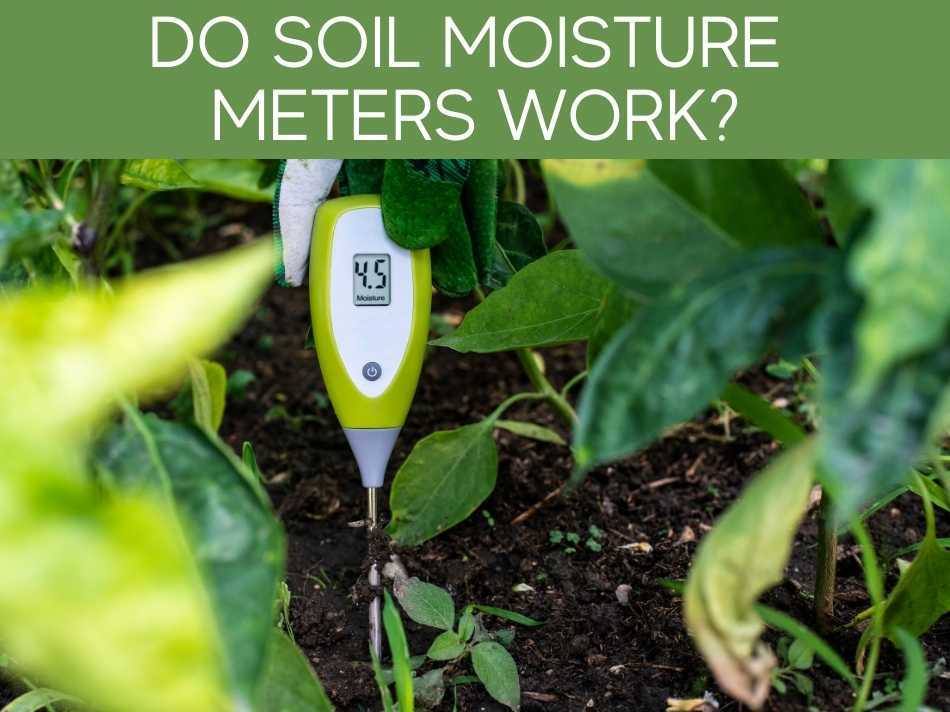
Soil moisture meters are a small electronic device that can tell you if your watering routine is up to snuff, or if you need to do some adjusting.
Soil moisture meters use an electric current to determine how much moisture is present in the area.
The meter works by measuring the conductivity of the soil either from a single probe or between two probes; the higher the conductivity, the more moisture there is in the soil!
These hand held meters will give you either a digital read out or an analog scale to give you your results.
The answer they give is quite simple – dry, moist or wet.
Like I said, you don’t need to be a soil scientist to make sense of these results!
Oh, and if you’re growing tomatoes, you probably want to check out our article on what soil is best for tomatoes.
Find out if you soil might be hydrophobic (and how to fix it).
Soil pH meters accuracy
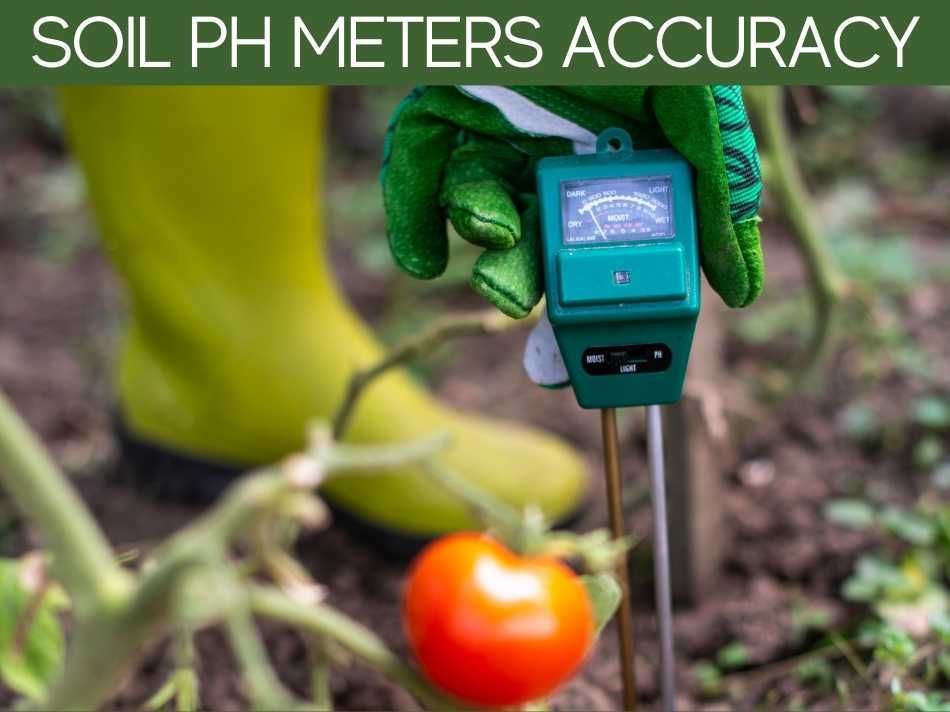
Soil pH meters are an accurate and helpful tool to get an inside look at your soil acidity.
You can find analog scale meters as well as digital read devices, varying in price and accuracy.
Analog meters give you the pH value on a scale.
Quick, simple and no batteries required – my favourite kind of technology!
If you want more accurate results, using a digital meter, like the Gardman Soil pH meter that measures to the first decimal place(6.0 rather than 6), would be your best choice.
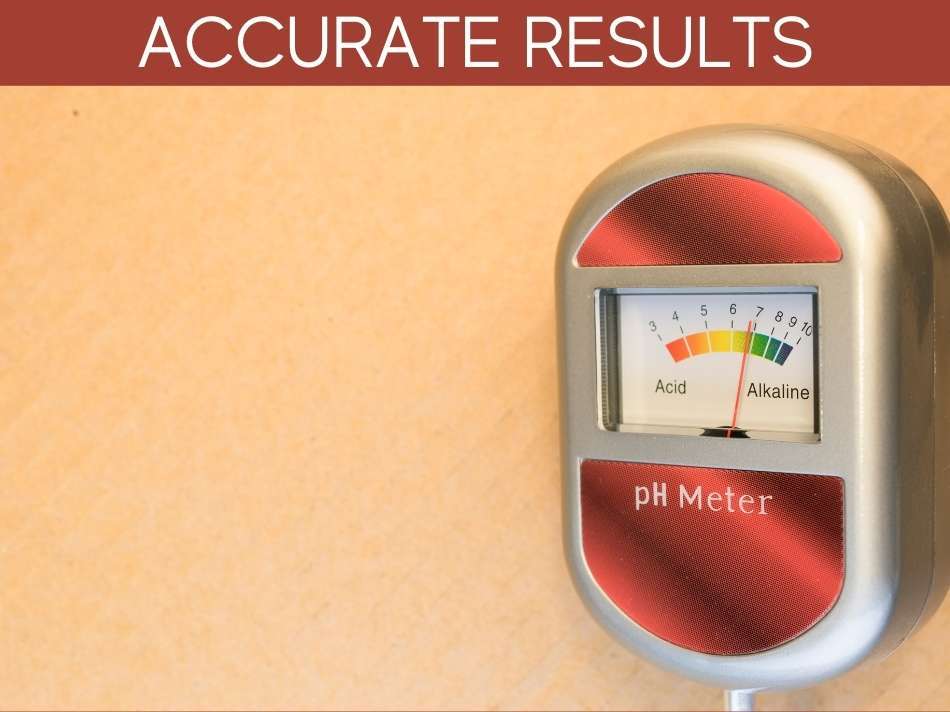
In either case, these devices use an electric current to measure the pH of your soil; the more acidic the soil the higher the voltage!
If you just insert the meter into the ground your results will be much less reliable or you may not get a result at all.
The more acidic the soil sample is (1.0-6.9 pH) the more conductive it is, and the pH meter converts this information to an easy to read result for you!
To ensure that your meter is consistently giving you accurate results it is best to keep it well cleaned and stored properly.
You should also regularly test your meters using solutions with a known pH, such as water (7.0) or vinegar (2.5).
Doing these simple things will help you feel confident in your meter’s accuracy, or know when it is time to get a new one.
Oh, and if you find that your soil is too alkaline, check out our complete guide on how to lower soil pH.
Gardman soil pH meter
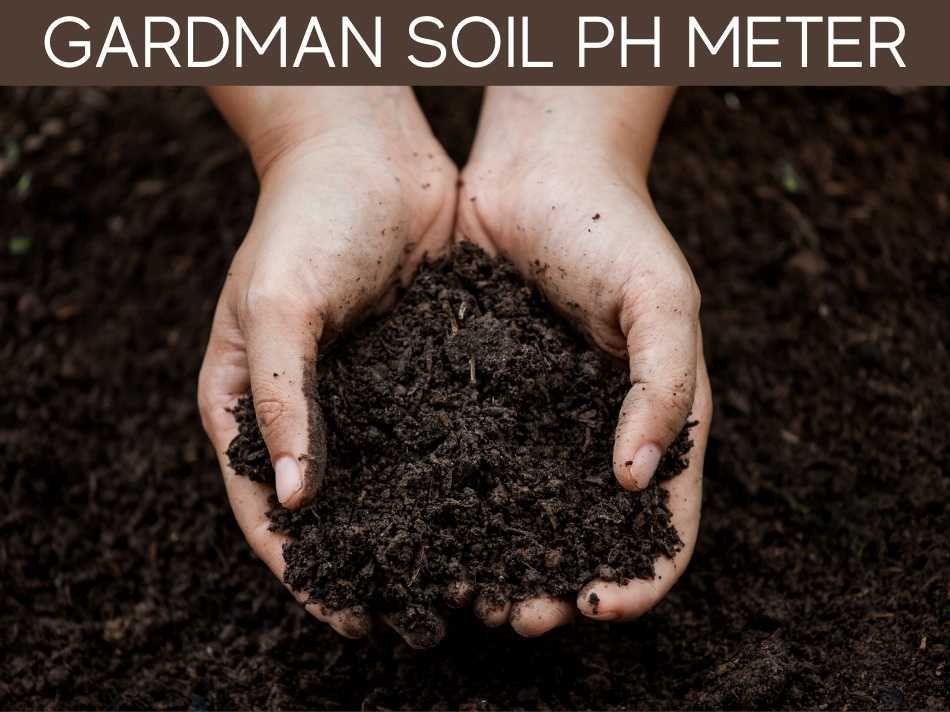
The Gardman digital soil pH meter is a single prong pH meter with a digital screen to give you accurate and easy to read results!
To use this pH meter you simply mix up some soil and distilled water in a 1:1 ratio, and insert the probe into your solution.
The digital readout will tell you the soil pH to the first decimal place, which is especially helpful if you have some particularly picky plants!
Clean the probe after each use, being careful of the special tip, and it should continue to give you accurate results!
If you want to further ensure your results are accurate, you can take a few samples from the same area and test them separately.
Sonkir soil pH meter
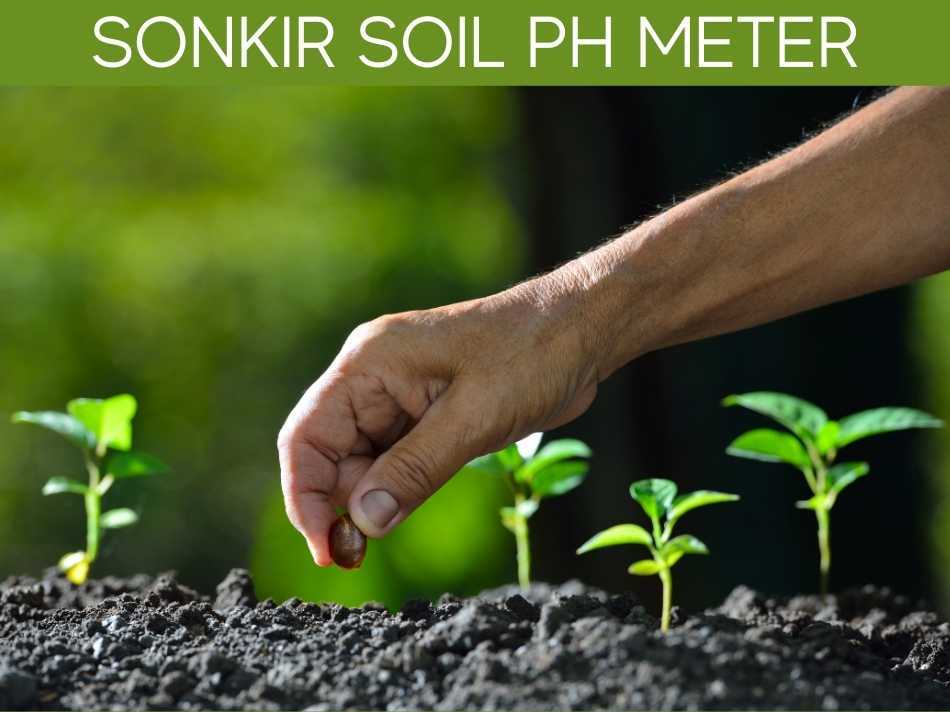
The Sonkir soil pH meter is an analog meter with a 3-in-1 design to tell you the moisture level, pH and sunlight value.
Having a device like this that can answer multiple questions would be perfect for most of us!
In order to test the pH using this device you will need to make a 1:1 mixture of soil and distilled water, and put the setting to “pH”.
The Sonkir soil meter does not give the pH value to the first decimal place, however for most home garden use, the approximate pH value is just fine for diagnosing a major pH problem!
To use this device to test the moisture level of your soil, you simply place it in the ground with the setting on “moisture”.
To make sure you are getting accurate results make sure you keep the metal probe clean and dry, and store it properly.
It is also a good idea to frequently test the pH setting by using the meter on samples that you know the right pH, such as vinegar (2.5).
You can also test the moisture setting on this device in a similar way; testing it in very wet and very dry soil and making sure the meter has tested them properly.
These few maintenance tasks will help you feel confident in your device, and therefore give you confidence in your garden!
Do I Need a Soil Meter?
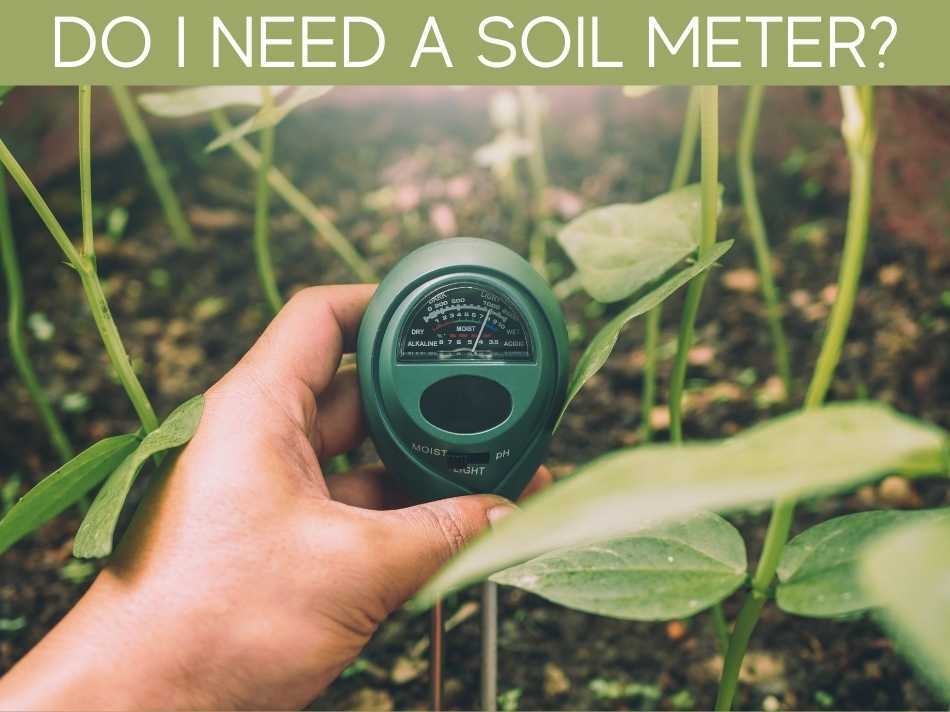
If you find your garden just isn’t flourishing the way you would expect, getting yourself one of these handy gadgets could be a big help.
For example, if you just need a little bit of extra information about your soil’s health, one of these soil meters could be all that you need to get your garden back on track.
However, if you have exotic or extremely picky plants that require precise measurements, you may not benefit as much from these simple devices.
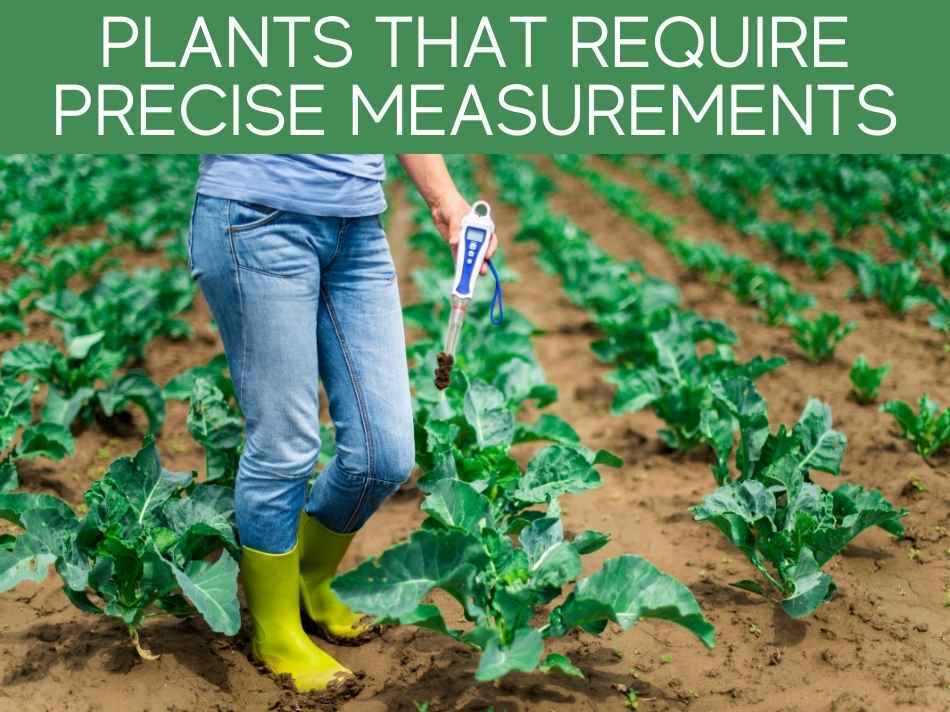
It can be hard to put our trust in gadgets like this, especially if you are a lifelong gardener who prides yourself in understanding your plants.
But sometimes our garden is trying to tell us something that we could never understand without a little bit of testing.
So if you think you may be missing something in your garden care, trying out one of these simple tools could be just what you need.
